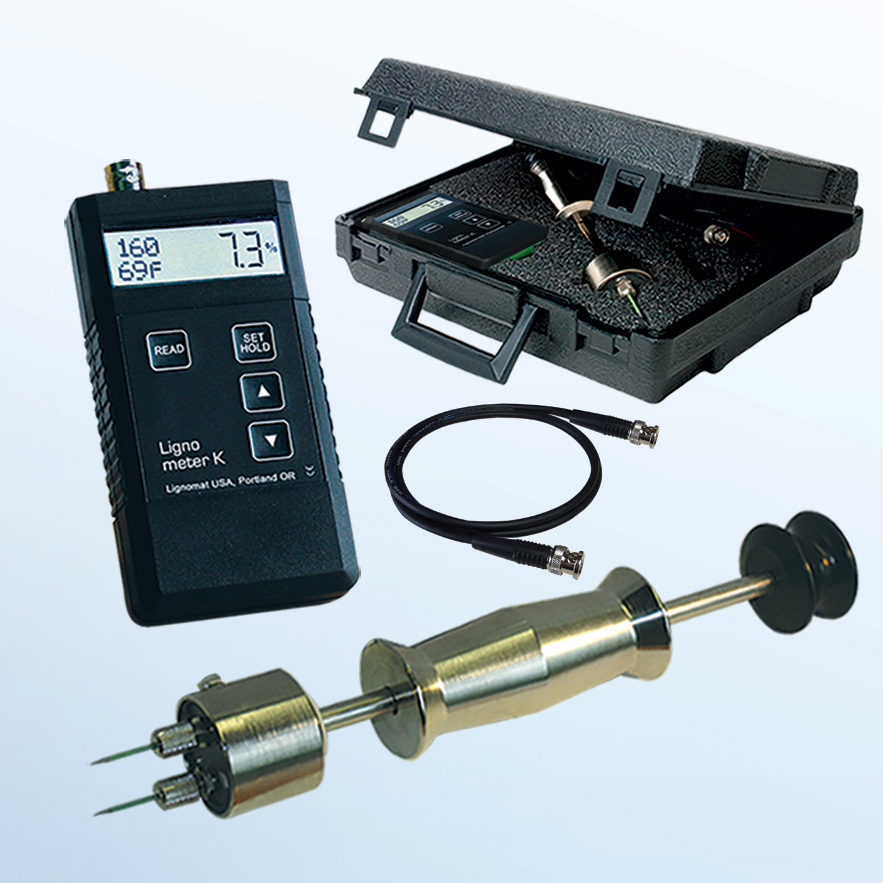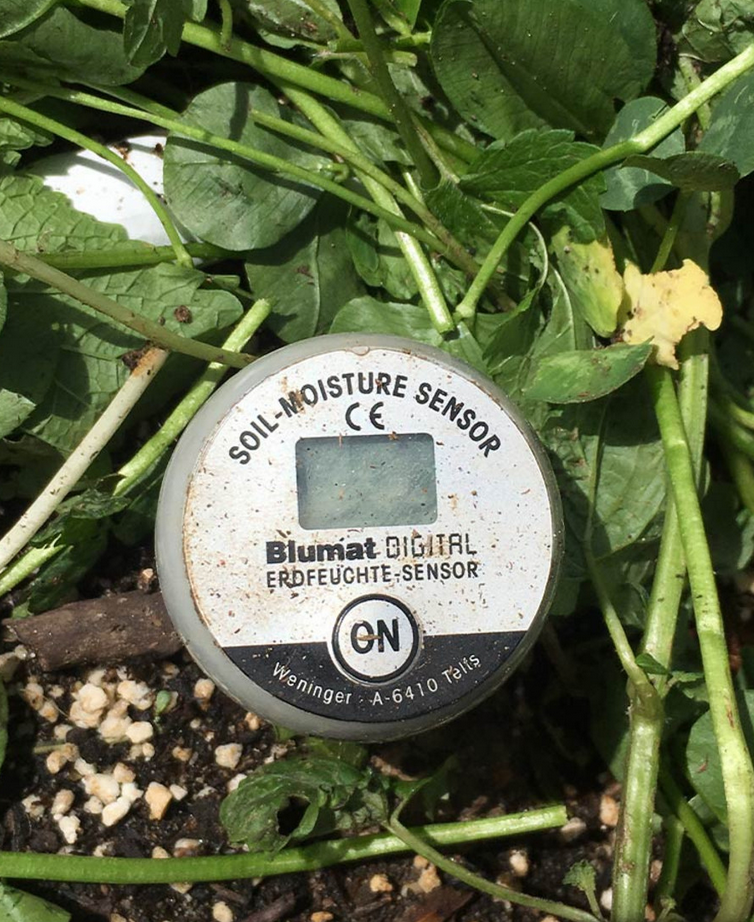The Scientific Research Behind Moisture Meters: Just How They Work and Why They're Necessary
Wiki Article
The Ultimate Overview to Moisture Meters: A Comprehensive Summary and Exactly How They Can Conserve You Money
In the realm of building maintenance, building, and numerous markets, the relevance of accurately gauging dampness degrees can not be overemphasized. Dampness meters work as essential tools in discovering and keeping track of moisture material in materials, helping in stopping expensive damages and ensuring the high quality of products. Comprehending the subtleties of different kinds of moisture meters, their applications, and the possible cost-saving benefits they supply can be a game-changer for organizations and specialists alike. Uncovering just how these devices can not only simplify procedures but likewise add to monetary savings is a trip worth beginning on.Types of Moisture Meters
One typical kind is the pin-type moisture meter, which determines the electrical resistance in between 2 pins put into a material. Pinless dampness meters, on the other hand, use electro-magnetic sensing unit plates to scan a larger area without causing damages to the material's surface area.Moreover, there are also specialty dampness meters developed for particular materials like soil, grain, or hay. These meters give exact wetness readings customized to the one-of-a-kind residential properties of the product being tested. Infrared dampness meters measure the thermal residential properties of a product to establish its moisture web content non-invasively, making them helpful for applications where pin or pinless meters may not be appropriate. Understanding the various kinds of wetness meters available can help markets select the most suitable tool for their certain dampness measurement requirements.

Advantages of Using Moisture Meters

Moreover, making use of moisture meters can bring about increased energy efficiency. By recognizing locations with high dampness degrees, such as leaks or poor insulation, adjustments can be made to boost power preservation and minimize utility prices. In agricultural setups, moisture meters play an important duty in optimizing crop yields by allowing farmers to check dirt dampness levels and make educated watering choices. In general, the benefits of utilizing moisture meters span across numerous markets, giving cost-efficient solutions and advertising far better quality assurance techniques.
Exactly How to Pick the Right Moisture Meter
Choosing the appropriate wetness meter includes considering vital variables such as material compatibility, measurement variety, and calibration precision. When choosing a wetness meter, it's necessary to guarantee that the meter is appropriate for the details product you will be testing. Various products have differing electric properties that can affect dampness analyses, so choosing a meter made for your product is essential for precise results. In addition, consider the dimension series of the moisture meter. Make sure that the meter can detect dampness levels within the variety required for your applications. Calibration precision is an additional vital aspect to remember (Moisture Meter). Opt for a wetness meter with trusted calibration to ensure exact and constant analyses. Some meters may need routine calibration modifications, so understanding the calibration process is very important. By carefully reviewing these elements, you can pick a wetness meter sites that meets your important link requirements and offers accurate dampness measurements for your tasks.Correct Strategies for Moisture Meter Usage
To make certain precise moisture analyses and make best use of the performance of a moisture meter, using correct techniques is essential. When utilizing a pin-type dampness meter, insert the pins or probes into the product being examined until they make complete get in touch with. Make certain the pins are perpendicular to the surface area to obtain the most exact analysis. For pinless wetness meters, hold the gadget level versus the material and relocate gradually to cover the whole area for a typical analysis. It's essential to calibrate the moisture meter according to the product being examined to enhance precision. Take several analyses throughout the surface and ordinary them out for a more reputable outcome. In addition, guarantee that the product being tested is accustomed to the atmosphere to prevent manipulated analyses. Normal maintenance of the wetness meter, such as cleaning the pins or sensing unit, is likewise essential to ensure regular and precise analyses. By complying with these proper methods, customers can depend on their wetness meter to offer trustworthy wetness levels, assisting in protecting against costly damage or guaranteeing top quality in numerous applications.
Expense Cost Savings Through Moisture Meter Applications
Just how can the critical utilization of moisture meters result in substantial price financial savings throughout various sectors? Wetness meters play a crucial duty in price savings by protecting against possible damage and guaranteeing quality assurance in various fields. In the farming sector, dampness meters help in establishing click for source the ideal time for collecting crops, protecting against over-drying or excess dampness that can influence the end product's quality. This specific surveillance helps farmers avoid unneeded losses and optimize their return.

Furthermore, in the food processing industry, dampness meters are necessary for keeping an eye on product quality and making certain conformity with safety and security laws. By properly determining wetness material in foodstuff, manufacturers can prevent putridity, preserve freshness, and decrease waste, leading to considerable price financial savings. Generally, the calculated application of dampness meters is a useful financial investment that can cause substantial cost reductions and enhanced performance across different industries.
Verdict
Finally, dampness meters are valuable tools for measuring and finding dampness levels in various products. By utilizing the best dampness meter and adhering to appropriate methods, customers can effectively protect against costly damages triggered by excess moisture. Investing in a high quality wetness meter can result in significant price savings in the long run by determining prospective issues at an early stage and enabling timely remediation. Inevitably, dampness meters are vital instruments for maintaining the stability and longevity of products and structures.Wetness meters offer as essential devices in detecting and keeping track of moisture material in products, assisting in preventing expensive damages and making sure the top quality of items. Infrared moisture meters measure the thermal properties of a material to determine its moisture material non-invasively, making them beneficial for applications where pin or pinless meters might not be appropriate.Dampness meters use invaluable advantages in accurately checking and analyzing dampness degrees in varied products and atmospheres. In agricultural settings, moisture meters play an essential role in enhancing crop yields by enabling farmers to keep track of soil moisture levels and make informed watering choices.In verdict, moisture meters are important tools for spotting and measuring wetness levels in different materials.
Report this wiki page